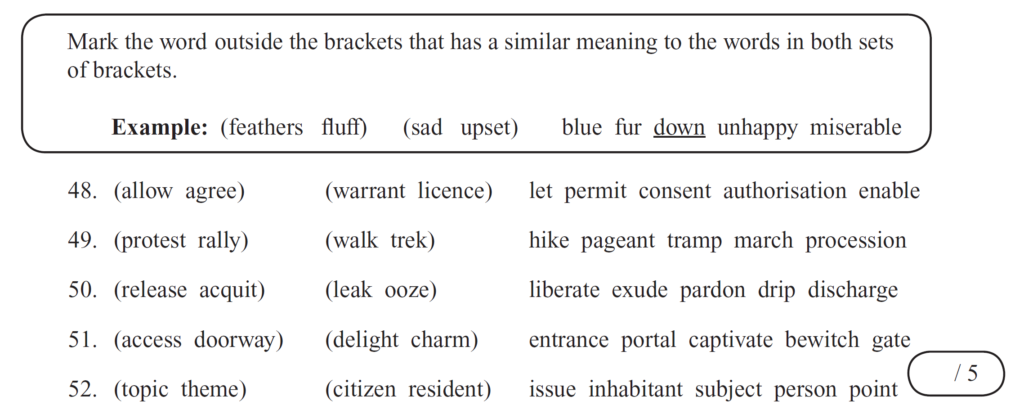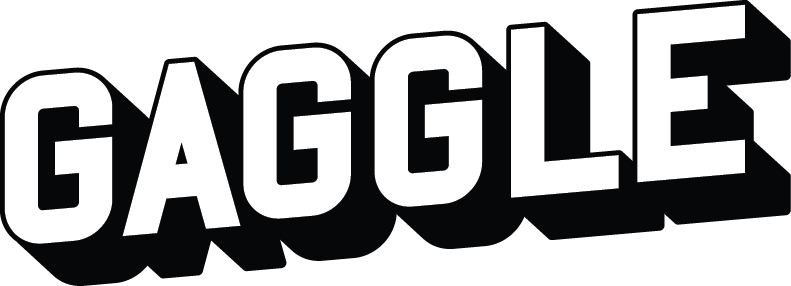Verbal Reasoning – Synonyms (Type D)
- April 30, 2021
- Posted by: gg-pure
- Category: Verbal Reasoning
The synonym question type requires you to select the word that is closest in meaning and definition to the pairs of words already provided.
Synonym means: a word or phrase that means exactly or nearly the same as another word or phrase in the same language, for example shut is a synonym of close.
You will be given multiple answers to choose from, but only one will be the answer and similar in meaning. These question types can and have appeared in other forms such as:
- Select two words which are the most similar in meaningfrom two groups of words
- Fill in the missing letters in the synonym that matches the words given already
- Select the words or phrases which are most similar in meaning
Regardless of the format of the question this question type, at its core, will test the following:
- Knowledge of English language and vocabulary
- Understanding the context behind words and relationships
- Knowing words with multiple meanings
- Building context based on the similarities in words
- Working methodically and step by step
- Ability to recognise words and letters
The core skills that the synonym questions test can only really be achieved by constant exposure to the English language, its words, spelling and the use. You not only need to know the definition behind a word, but also why, when and how words and their meanings can change.
Knowing these changes will help you process the information quicker, as familiarity will make it easy for you to establish relationships between similar sets of words and their meanings.
This is why the question format for synonyms isn’t as big a problem as you think. This is because if you are confident and competent in your English language then you can adapt to whatever format the question is because ultimately it’s asking you the same thing. Remember, you’re here to develop the skill, not just to learn how to answer the question type.
Understanding context when it comes to synonyms
First of all context means the background to something, and here, you are required to apply your background knowledge in order to understand how words change based on that.
One thing that you can get caught out on is understanding how words change based on the context of a situation or scenario. There are a number of ways to tackle this but essentially knowing multiple meanings and being able to refer to them when comparing other word definitions is what you will be asked to do.
Take the example of the word content, it can be used as an adjective and a noun:
- Adjective: in a state of peaceful happiness.
- Noun: the things that something is made up of.
Now, if you were asked to find the similarities between the following 3 words, content, gap and substance, which would you go for?
Well you would choose content and substance because substance can also mean the physical matter of something. So, although content can have 2 different meanings, within the context of this question, it is more relevant and similar than gap.
What do Synonym Questions Look Like?
As you can see from the CGP example below, the Synonym question is in the following format:
- General instructions
- 1 or more sets or groups of words
- Multiple possible answer choices
- 1 mark per question

How do I answer this question?
Vocabulary is a huge requirement in Verbal Reasoning as a whole so you need to have been practising your vocabulary often and early. By doing so, you would have explored as much of the English language as possible making your knowledge of the words, definitions and uses of the word stronger.
The synonyms question type can seem straightforward, and it generally is, however it can become confusing if you are finding it difficult to identify similarities. What you want to do is apply the following process:
- Identify the similarities in the definitions of the first set or pair of words
- Identify the similarities in the definitions of the second set or pair of words
- Look through the answer options given to you
- For each word check to see if it is similar in meaning to the first set or pair of words
- If it is similar to the first set, then check to see if it is similar to the second set or pair of words (if it isn’t similar then move to the next word!)
- Ask yourself can the meaning of the answer I have chosen change – if so, when I put it next to Set 1 does it mean one thing and then with Set 2 can it mean something else?
For each set or group of words you should always be asking yourself what does it mean and also in what context would the words be used. By asking these kind of questions you can identify how the answer you choose needs to adapt to the context of the word sets / group.
What if I don’t recognise the words?
Just as much as English vocabulary is emphasised, you cannot realistically know every word and these exams are notorious for throwing out very unique words and terms. In the scenario where you have applied the above process and still find it difficult to identify even the definition of the word you can try the following:
- For each word say it to yourself in a sentence that you think it fits in. Make the sentence either a doing, speaking or listening sentence. Does it sound right or wrong? How are you trying to use it in the sentence? Does it fit?
- If you have a set of words or a group, look at the other words to see if you know their meanings. If you do, most likely the word you don’t recognise will be very similar
- If you don’t recognise the whole group or pair of words, look at the answer options that you have been given, do you recognise their meanings. If so, which do you think looks and sounds the most similar?
- If you recognise the word groups and pairs, but not the answer options, say a sentence with one of the words from the pair first. Then replace it with the answer options, does the sentence still make sense e.g. “They would not allow” and “They would not enable“.
- If you recognise the word groups or pairs, look at the answer options and eliminate any of the opposite words
At the point where you are either confused or just don’t know the words, be logical and systematic – and not too hard on yourself. Take your time, make your best guess from the information that has been given to you and move on. Do not let this waste your time and stop you from answering a question that you are confident in.
Things to watch out for
Do not get mistaken or falsely guided by words that:
- Of different tenses e.g. past, present and future
- Of different types e.g. adverbs, nouns or adjectives
- Needing to specifically match all the words – now this seems against what you should be doing but sometimes where you may miss the similarity its better for you to be confident in most of your choices than spending the time to be confident in all of them
- Not understanding that word groups are there for a reason
It is important for you differentiate between synonyms – words which have the same meaning and words that are connected based on type or tense. Connected words aren’t synonyms, instead they are the original word but in a specific state e.g. find is present tense and found is past.
